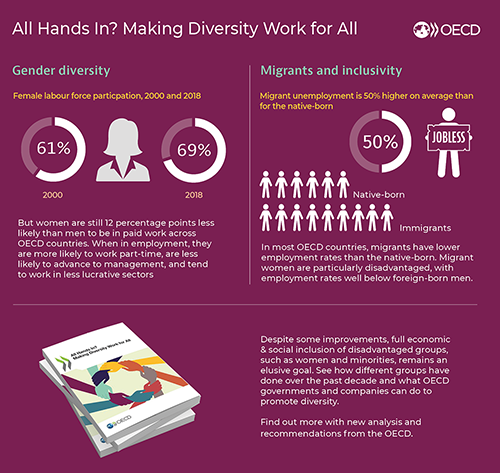Social and welfare issues

All Hands In? Making Diversity Work for All
OECD societies have become increasingly diverse in the past decades, offering new
opportunities if diversity is properly managed. Ensuring that OECD countries are equipped
to make the most of diversity by fully utilising all talent among diverse populations
and promoting inclusive labour markets is a key challenge. Both businesses and governments
are responding to this challenge with policies to strengthen the inclusion of diverse
groups in the workplace and labour markets. This report considers five key groups
who are widely considered disadvantaged in the labour market and society at large
and who often face discrimination based on their group membership: immigrants, their
descendants and ethnic minorities; LGBT people; older people; people with disabilities;
and women. It assesses: i) how the inclusion of these groups in OECD labour markets
has evolved over time, ii) the evidence on how diversity affects economic outcomes;
and iii) which policies countries have implemented and what is known about their effectiveness.
Published on September 02, 2020
TABLE OF CONTENTS
| Foreword | |
| Executive summary | |
| Diversity in OECD countries: Population diversity, labour market inclusion and acceptance of diversity | |
| The impact of diversity: A review of the evidence | |
| Diversity policies in the OECD and evidence on their effectiveness | |
| Challenges in promoting effective diversity policies | |
| Conclusion | |
| Glossary | |
Powered by OECD iLibrary
